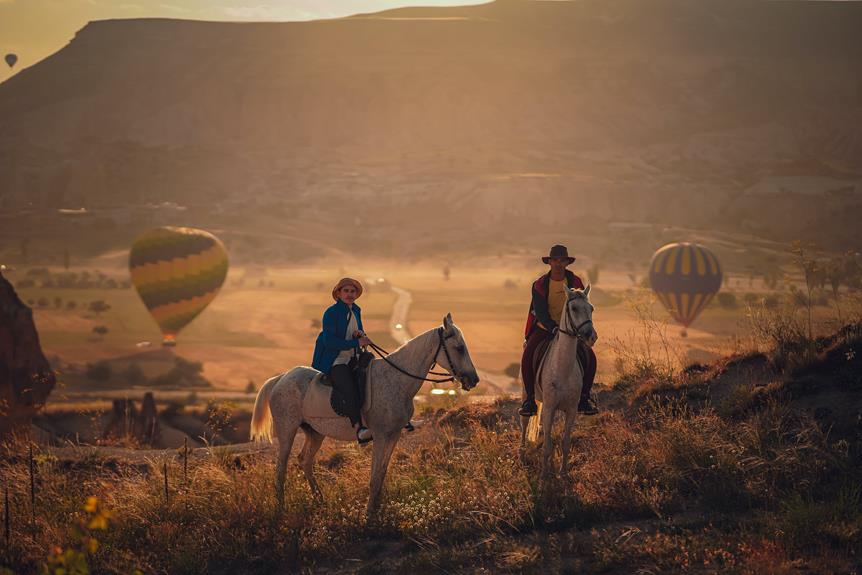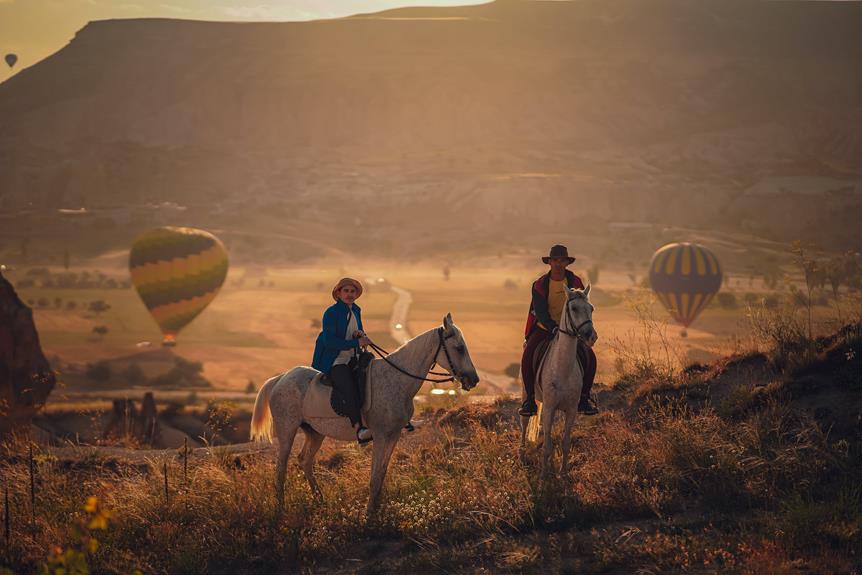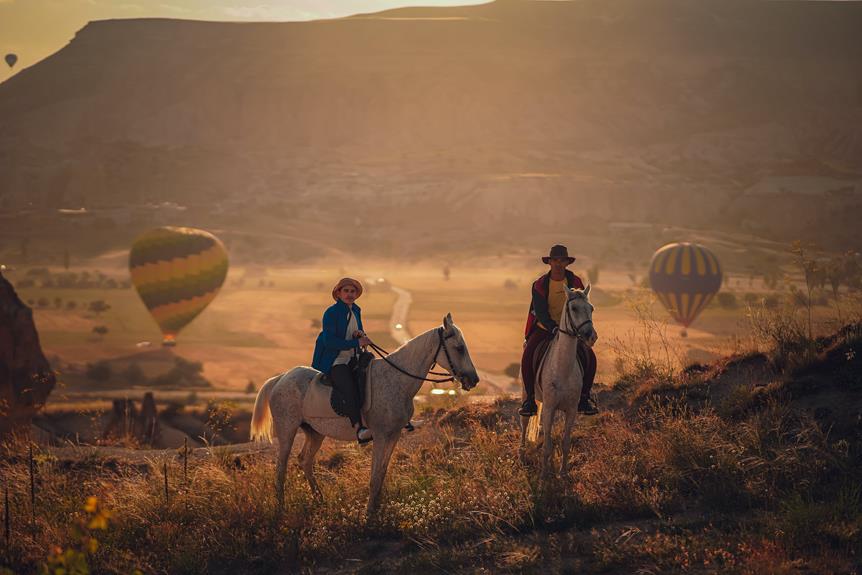Did you know that horses, majestic creatures known for their grace and strength, have a rather peculiar dietary habit?
While it may sound unlikely at first, the question of whether horses eat meat has intrigued many. You might be surprised to learn that despite their herbivorous nature, there have been rare instances where horses have been observed consuming small quantities of meat or animal derivatives.
But why would a herbivore indulge in such unusual behavior? And can horses truly digest and benefit from meat?
Let's explore this intriguing topic further and uncover the fascinating secrets of equine nutrition.
Key Takeaways
- Horses have a digestive system adapted for breaking down plant matter, making them primarily herbivores.
- While horses may exhibit unusual behavior of cannibalism and meat consumption, this is driven by curiosity, mineral deficiencies, or seeking saltiness, and it should not be a regular part of their diet.
- Factors influencing meat consumption in horses include digestive system adaptations, dietary deficiencies, curiosity, and cultural practices.
- Horses are not able to digest and derive significant nutritional benefits from meat, as their digestive system is designed for processing plant matter and lacks the necessary components for meat digestion.
Horse Nutrition and Digestion
In order to understand horse nutrition and digestion, it's important to recognize that horses have a digestive system specifically adapted for breaking down plant matter. Unlike carnivorous animals, horses are herbivores and don't naturally eat meat. Their digestive system, including their large stomach and intestines, is designed to process fibrous vegetation. Horses have flat and molar-like teeth, which are perfect for grinding and chewing plants, but they lack pointy canine teeth for tearing meat.
Horses primarily rely on roughage like grass and hay for their nutrients. Roughage takes up a lot of space in their stomach due to its high water content. To maintain their weight, horses require around 13,500 calories a day. This is supplemented with grain, dried hay, and sweet feed. However, it's important to note that forage should be available to horses 24/7 to maintain a healthy digestive system. Grain should only be used as a supplement, not the main source of sustenance.
Unusual Behavior: Cannibalism and Meat Consumption
While horses are primarily herbivores with a digestive system adapted for processing plant matter, there are instances where they may exhibit unusual behavior, such as cannibalism and meat consumption. Although it isn't their natural inclination, horses have been known to nibble on meat or bones. However, this behavior is typically driven by curiosity, mineral deficiencies, or seeking out saltiness, rather than having a natural craving for meat.
Here are a few key facts about unusual behavior in horses regarding cannibalism and meat consumption:
- In certain harsh climates and historical contexts, horses have been fed derivatives of meat, such as dried fish, blood, and dried camel meat, to supplement their diet for increased protein and survival.
- Some horses may show interest in meat due to its distinct taste or smell, but it shouldn't be a regular part of their diet.
- Feeding horses meat can pose potential health risks and is generally unsuitable for their digestive system, as it can lead to serious conditions such as colic and metabolic issues.
While horses may exhibit unusual behavior when it comes to meat consumption, their diets should primarily consist of forage, hay, and plants, as these are essential for their overall health and well-being. It's important to ensure that horses receive a balanced and appropriate diet to maintain their optimal health.
Factors Influencing Meat Consumption in Horses
Factors such as digestive system adaptations, dietary deficiencies, curiosity, historic and cultural practices, and health implications influence meat consumption in horses.
Horses have a digestive system that's specifically adapted for processing plant matter, lacking the necessary components to efficiently digest and utilize meat. Their diet primarily consists of grasses, hay, and grains, making them herbivores rather than meat eaters.
However, in certain circumstances, such as harsh climates or scarcity of food, horses may be exposed to dietary deficiencies, which can drive them to consume meat-based supplements as a means of obtaining essential nutrients.
Additionally, horses' curiosity and behavioral tendencies, such as nibbling on unconventional items or exploring unfamiliar foods, can lead to occasional meat consumption.
Some historical accounts and cultural practices have also documented instances where horses were fed meat-based diets or supplements, particularly during extreme conditions or times of scarcity.
It's important to note that consuming meat can pose health risks for horses, including digestive disorders, nutrient imbalances, and other complications. Therefore, it's generally recommended to provide horses with a balanced diet that's appropriate for their specific digestive system and nutritional needs.
Historical Instances of Horses Eating Meat
Considering the various factors influencing meat consumption in horses, it's intriguing to explore the historical instances of horses eating meat. Throughout history, there have been several instances of horses consuming meat, although evidence is lacking in some cases. Here are three notable examples:
- In harsh climates like Iceland, horses may be fed dried fish for increased protein. This practice helps them maintain a balanced diet and ensures they receive the necessary nutrients to stay healthy.
- During arctic expeditions, famous explorer Ernest Shackleton's horse, Socks, shared meaty meals. In extreme conditions, horses may require additional protein and energy sources, and meat can be a valuable supplement to their diet.
- In times of war or scarcity, horses in desert lands may be fed a mixture of honey, dried locusts, and dried camel meat. These unconventional feed sources provide horses with essential nutrients when other food options are limited.
While these instances demonstrate that horses can consume meat, it's important to note that such cases are exceptions rather than the norm. Horses are primarily herbivores and have evolved to thrive on a diet of grass and forage. However, their occasional meat-eating behavior is influenced by factors such as environmental conditions, availability of food sources, and their individual preferences.
Can Horses Digest and Benefit From Meat?
Horses, being primarily herbivores, are not able to digest and derive significant nutritional benefits from meat. Their digestive system is specifically designed for processing plant matter, with a large stomach and long intestines. Horses lack the liver function necessary to remove toxins commonly found in meat, and their flat, molar-like teeth are adapted for grinding plants rather than tearing and chewing meat.
| Digestive System | Body Weight | Meat-based |
|---|---|---|
| Large stomach | Herbivores | Not suited |
| Long intestines | ||
| No liver function | ||
| Flat, molar-like teeth |
While there may be historical accounts of horses eating meat during times of war or scarcity, these instances were driven by necessity rather than the horses actively seeking out meat as a part of their diet. In specific harsh climates, such as Iceland, horses may be fed dried fish or blood and grain mixtures for increased protein. However, it is important to note that these are derivatives of meat and not the meat itself.
Frequently Asked Questions
Is It OK for Horses to Eat Meat?
It's not recommended for horses to eat meat. Doing so can pose health risks like digestive disorders and colic. Stick to their natural plant-based diet of grass and hay for their overall well-being.
Were Horses Ever Meat Eaters?
In their evolutionary history, horses had carnivorous ancestors. However, over time, they developed dietary adaptations to become herbivores. Horses were not meat eaters, but their ancestors were.
Why Do Horses Eat Chicken?
Horses may eat chicken out of curiosity or due to diet deficiencies, but it's not their natural diet. While chicken can provide some nutritional benefits, feeding it to horses can pose potential risks like digestive disorders and colic.
Why Is Horse Meat Forbidden?
Horse meat is forbidden due to cultural beliefs, health concerns, and reasons like the emotional bond humans have with horses. These factors contribute to the taboo surrounding horse meat consumption.
Conclusion
In conclusion, horses are primarily herbivores and their digestive system isn't designed to process meat. While there may be rare instances where horses consume small amounts of meat, the majority of horses thrive on a plant-based diet.
It's important to provide horses with the appropriate nutrition that aligns with their natural dietary needs for optimal health and well-being.



0 Comments